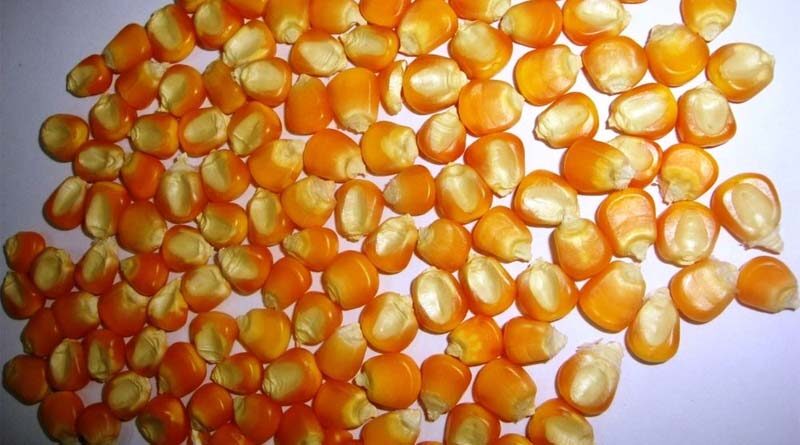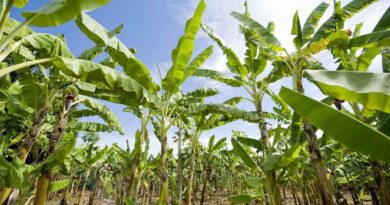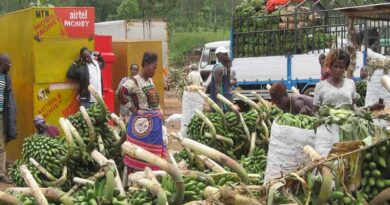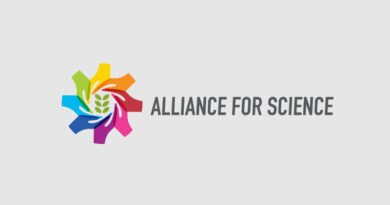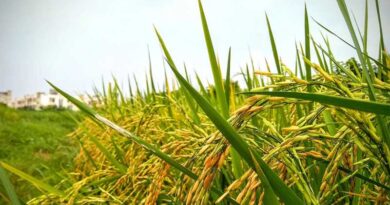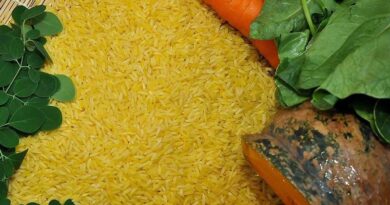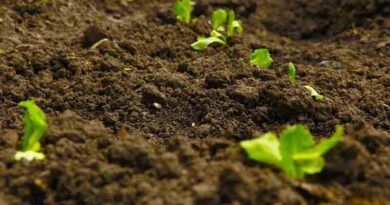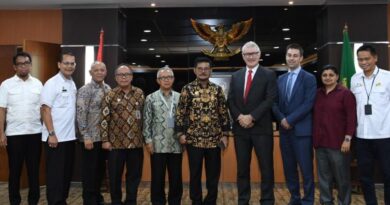African scientists urge governments to invest in appropriate regulatory mechanisms for biotech products
21 March 2023, Africa: African scientists urge governments to invest in appropriate regulatory mechanisms for biotech products
African scientists are urging governments across the continent to invest in appropriate regulatory structures and monitoring mechanisms for crops and animals produced using biotechnology.
They want to see more investments in laboratories that can help appropriately detect and trace products of the genetically modified organism (GMOs) technology and gene editing.
They say this is necessary to ensure close supervision of the products so the full potential of agricultural biotechnology can be explored in Africa.
Dr Francis Djankpa, Senior Lecturer at the School of Medical Sciences, University of Cape Coast, Ghana. [Joseph Opoku Gakpo]
“Governments in Africa need to empower the existing institutions. In Ghana, we have the National Biosafety Authority (NBA), Council for Scientific and Industrial Research, and Food and Drugs Authority, said Dr Francis Djankpa, Senior Lecturer at the Department of Physiology, School of Medical Sciences, University of Cape Coast.
“So, it’s either government should empower and equip them to take up such detection. Or our governments can set up new laboratories so we can work together on this.”
In 2022, Ghana approved its first GMO crop, Bt cowpea, which is resistant to pest attacks.
Genetically modified crops are grown commercially in Nigeria, South Africa, Ethiopia, Malawi, Sudan, and Eswatini.
Dr Djankpa, who serves on the technical committee of the NBA, said the public has no reason to be apprehensive about GMOs, but structures need to be in place to appropriately monitor their use.
“There shouldn’t be any fear about GMOs. For the variety that has been approved, we requested comprehensive documents and information from the applicants, and they brought them. We were satisfied before approving. So, there is no fear at all,” he said.
Opportunity for scientists and regulators
He was speaking to the Alliance for Science at the International Conference on GMOs and New Genomic Techniques in Berlin, Germany.
The conference, which ended on March 16, 2023, provided an opportunity for scientists and regulators to learn about recent developments in the fields of detection and identification of GMOs and new genomic techniques.
“Africa would have to build its capacity not only in terms of human capacity but also appropriate tools to be able to regulate these new genomic techniques… and especially indigenous GMOs.”
Organized by the German government and the United Nations Convention on Biological Diversity, it sought to promote broad technical and scientific exchange between scientists worldwide on the status and challenges for traceability, detection, and identification of GMOs and products of genomic techniques.
Africa needs to catch up
In Africa, genetically modified crops are grown commercially in Nigeria, South Africa, Ethiopia, Malawi, Sudan, and Eswatini.
Field trials are ongoing in 11 other countries as part of approval processes.
Four countries have various genome-edited crop projects in the works.
Work on genome-edited banana, maize, yam, cassava, and wheat is being done in Kenya, Uganda, South Africa, and Egypt.
Scientists say appropriate methods of detecting and tracing these crops are good for stewardship so their spread can be accounted for.
“Looking at the advancement made in other parts of the world, it looks like we are very late in Africa. So, I think we have to wake up,” Dr. Djankpa said.
Josephine Amedu, the Principal Biosafety Officer at Nigeria’s National Biosafety Management Agency wants to see Africa expand on the capacity it has in the area of detection and traceability of biotechnology products.
“Africa would have to build its capacity not only in terms of human capacity but also appropriate tools to be able to regulate these new genomic techniques… and especially indigenous GMOs,” she said.
“We have been able to have our heads of state sit down, and they are in the process of actually adopting a single regulation… We need to work more on that.”
She called for a more comprehensive harmonization of regulatory efforts in the handling of biotechnology products.
“Some harmonization has been done, especially in Europe and Southern Africa. These are all very beautiful initiatives. In West Africa, there is a platform whereby the regulations within the region are being harmonized.
“We have been able to have our heads of state sit down, and they are in the process of actually adopting a single regulation… We need to work more on that,” Ms Amedu said at the end of the conference.
Professor Stephen Ghogomu of the Department of Biochemistry and Molecular Biology at the University of Buea in Cameroon agrees there is a need for enhanced expertise in biotechnology supervision on the continent, which African governments should take seriously.
“Governments should support these processes. We cannot keep on looking for support only from outside.”
“We will need the expertise back home to be able to carry out the work on monitoring and detection. We will also need financing because the reagents are not affordable. We can seek research grants to carry out these diagnoses using new technologies in collaboration with other laboratories which are well-planted abroad. But we need local resources,” he said.
“Governments should support these processes. We cannot keep on looking for support only from outside.”
Also Read: Diageo India launches regenerative agriculture program in Punjab and Haryana farmers
(For Latest Agriculture News & Updates, follow Krishak Jagat on Google News)

